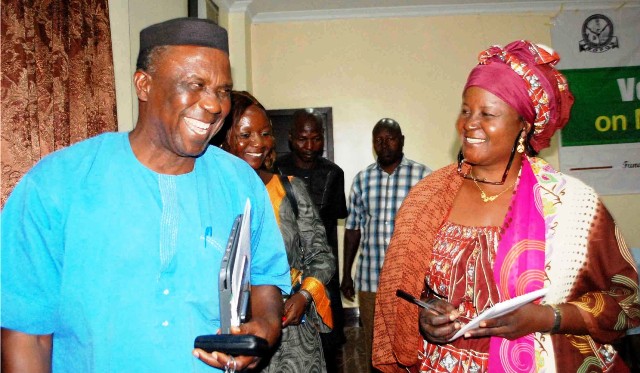Business
Solid Minerals: FG’s Initiative Yielding Positive Results -Fayemi

The Minister of Mines and Steel Development, Dr Kayode Fayemi, has said the that the Federal Government’s initiatives on solid mineral development is already yielding positive results.
Fayemi made this known at the opening of the First Northern Nigeria Solid Mineral Fair and workshop in Kaduna yesterday.
According to him, the mining sector is one of the few sectors that experienced positive growth index even at the peak of the recession.
He pointed out that the sector holds the key to the economic diversification for sustainable development of the current administration.
To achieve this, he said, the Federal Government had put in place adequate regulatory frameworks and investment-friendly policies.
Fayemi said that the policies hoped to attract genuine investment and fast track effectiveness in the sector.
He identified some of the policies to include security of tenure of minerals titles, transparent procedures for granting access to mineral titles and internationally competitive mining incentives.
Others were comprehensive geoscience data of mineral deposits and their locations in Nigeria as well as deferred royalty payments.
The others were exemption from customs and import duties for plant, machinery, equipment for mining operations, three to five years tax holiday and tax concessions.
“These initiative is already yielding positive results based on the data from the National Bureau of Statistics.”
He said that the theme of the fair, “Building a Solid Ground for a Resilient Economy”, was apt because Nigeria is endowed with vast solid minerals.
The minister, who expressed the need to adequately harness and develop the sector, hoped that the fair would usher greater collaboration between Federal and state governments.
Earlier, President Kaduna Chambers of Commerce, Industry, Mines and Agriculture, Dr. Farida Dankaka said that the fair was aimed at showcasing the products and services in Nigeria’s solid mineral sector.
Dankaka added that the forum hope to create awareness on best practices and application of technology to tackle environmental hazards in the mining sector.
According to her, the three-day forum is the first of its kind in northern Nigeria and is expected to provide a platform for stakeholders in the region in harnessing solid mineral deposits that have remained untapped.
“We hope that through this gathering, states and local governments would be encouraged to organise and register artisanal miners operating in their domain.
“This would ensure safer mining environment and improve revenue generation.
“It would equally curb environmental degradation and unhealthy practices that characterised illegal mining in local communities, “ Dankaka said.
On his part, Alhaji Musa Jibril of Kaduna State Ministry of Commerce, Industry and Tourism, called on investors to partner with the state government to tap from the huge mineral deposits in the state.
Business
Nigeria’s ETF correction deepens as STANBICETF30, VETGRIF30 see 50% decline in a week

Business
BOI Introduces Business Clinic

Business
Dangote signs $400 mln equipment deal with China’s XCMG to speed up refinery expansion

-
Maritime1 day ago
Customs Declares War Against Narcotics Baron At Idiroko Border
-
Maritime1 day ago
Nigeria To Pilot Regional Fishing Vessels Register In Gulf Of Guinea —Oyetola
-

 Sports24 hours ago
Sports24 hours agoGombe-Gara Rejects Chelle $130,000 monthly salary
-
Maritime1 day ago
NIMASA,NAF Boost Unmanned Aerial Surveillance For Maritime Security
-
Maritime1 day ago
NIWA Collaborates ICPC TO Strengthen Integrity, Revenue
-
City Crime21 hours ago
NCSU Hails Fubara Over 2025 New Telegraph Man Of The Year Award
-

 Sports24 hours ago
Sports24 hours agoTEAM RIVERS SET TO WIN 4×400 ” MORROW” …Wins Triple jump Silver
-

 Sports24 hours ago
Sports24 hours agoNSC eyes international hosting rights

